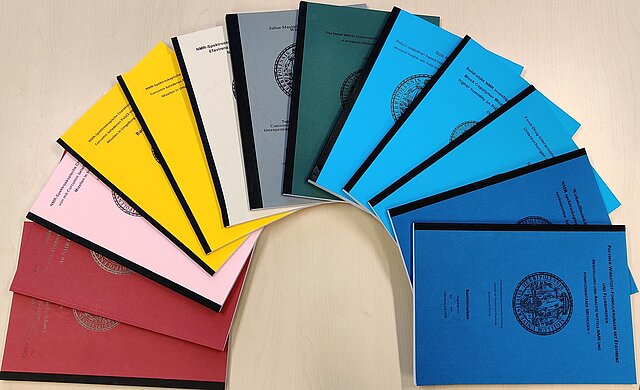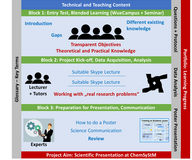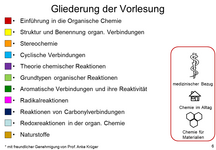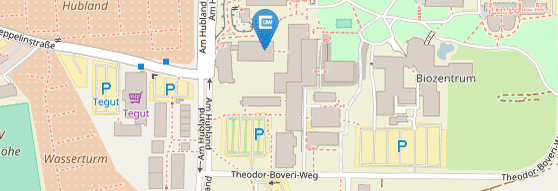Teaching
...during the summer term
Scientific knowledge, application to real world problems and science communication:
During the characterization of molecules, aggregates and more complex assemblies, a variety of puzzle pieces have to be joint and correctly assembled to improve our understanding of such materials. In this course, the focus will be on X-ray diffraction, solid-state NMR and computation for the investigation of complex solid materials. It involves appreciating the complementarity of different experimental, analytical and theoretical tools. Participants will learn that not one single analytical tool is THE answer, but that their combination can yield fascinating insights. Furthermore, participants will start developing the skills when which of the tools would be most appropriate.
Schedule (also see graphical representation on the right)
Phase 1 (term time – Vorlesungszeit): Blended learning phase with online course material and accompanying seminars as fundament for the further use of the toolbox (X-ray, solid-state NMR, computation) to characterize solid materials.
Phase 2 (5 days, block course): Application to real research problems gives an answer to “what do we learn this for”. Participants will work on small research questions including data analysis, combining insights from complementary methods and improving the understanding of the solid materials under study.
Phase 3 (5 days block course): Finally, science communication will be trained. Participants learn what a good presentation of research data could look like, how it can be achieved and how this can be evaluated.
Curious? - Then sign up for this new module on WueStudy.
More questions? – Contact us for more information (Ann-Christin Pöppler or Justyna Żmuda).
Additional information can be found on WueStudy.
...during the winter term
During this lecture, you will study the 12 principles of green chemistry with examples from laboratory synthesis, chemistry textbooks as well as current literature. These concepts will be broadened by including the fundamental principles of life cycle assessment and further aspects of sustainability.
We aim for the students to take an active role in this course, interacting in multiple ways with the material, the tutors and peers.
This lecture is taught in German and consists of two parts: inorganic and organic chemistry. Prof. Pöppler teaches the part on organic chemistry. The course design and course content is adapted from Prof. Anke Krüger who previously taught this module. You will obtain a broad overview of how to name organic molecules, how to talk about stereochemistry, the central reactions and reaction types in organic chemistry and also about specific compounds such as aromatic molecules and natural products. An outline of this part of the lecture on organic chemistry can be found in the image on the right side.
Additionally, the topics of the lecture are supported by a “Tutorium”, where the content is deepened with exercises.
...throughout the year
As a Master's Student (Chemistry), we are happy to have you for your "Forschungspraktikum" (OC: 8 weeks, Supra: 4 weeks).
More information can be found on WueStudy (Forschungspraktikum OC) and WueStudy (Forschungspraktikum Supra).
For Students in the Teaching Degree Programm (Lehramt GY, vertieft), the "Forschungspraktikum" can also be done with our group.
For more infomation, please visit WueStudy.
Students from other degrees need to check their ASPO on whether a credited internship is possible. In any case, a non-credited internship is possible.
If you're interested, feel free to contact Malte Mildner.
Towards the end of your studies, you'll need to write a thesis. This might be a Bachelor's or Master's Thesis, or even a Zulassungsarbeit. If you're interested in expanding your knowledge with our techniques and in becoming part of our group, just contact Malte Mildner.
We're looking forward to working with you!
.





